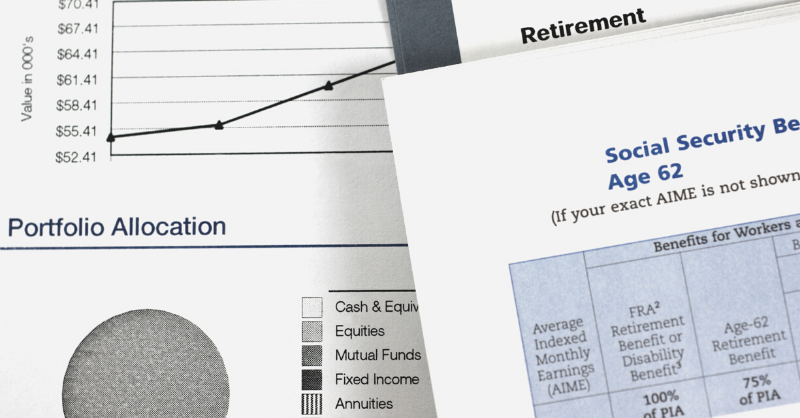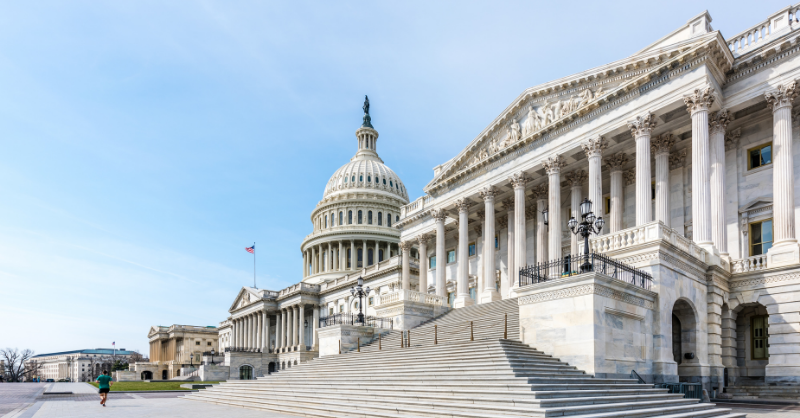Tag: corpgov
-
Economy and Society: Pushback against ESG in retirement plans
Posted on

ESG Developments This Week In Washington, D.C., and around the world Responses to Labor Department’s proposed rule encouraging ESG investments in retirement plans On December 13, National Review’s Capital Matters carried a piece by Richard Morrison, a research fellow at the Competitive Enterprise Institute, critical of the Labor Department’s proposed rule regarding ERISA-governed retirement plans…
-
Economy and Society: Rubio introduces bill targeting ESG-conscious corporate policies
Posted on

ESG Developments This Week In Washington, D.C. Rubio introduces bill targeting ESG-conscious corporate policies U.S. Senator Marco Rubio (R-Fla.) on September 23 introduced the Mind Your Own Business Act, which would allow a company’s shareholders to sue the company if it adopts policies that shareholders claim are not in the company’s best interest. The legislation…
-
Economy and Society: SEC Chairman issues another warning to fund managers
Posted on

ESG Developments This Week In Washington, D.C. SEC Chairman Gensler testimony on crypto, disclosure, and more On September 14, Securities and Exchange Commission (SEC) Chairman Gary Gensler testified before the Senate Committee on Banking, Housing, and Urban Affairs, covering several topics related to ESG investing. First, he discussed the SEC’s interest in regulating crypto-currencies and…
-
Economy and Society: JP Morgan decides all financial instruments should be ESG-compliant
Posted on

ESG Developments This Week In Washington, D.C., and around the world Saudi sovereign wealth fund reportedly seeking ESG framework, redux In the July 21 edition of this newsletter, we noted that the Saudi “sovereign wealth fund reportedly has begun the process of developing ESG reporting standards that will, presumably, allow it to raise greater funds…
-
Economy and Society: Regulatory scrutiny over ESG-related sustainability claims intensifies
Posted on

ESG Developments This Week In Washington, D.C., and around the world Regulatory scrutiny over ESG-related sustainability claims intensifies As was noted in last week’s newsletter, the SEC is investigating DWS (the asset management arm of Deutsche Bank) for alleged ESG-related fraud—claims DWS rejects. Many ESG observers believe that the DWS probe is the beginning of…
-
Economy and Society: SEC probes Deutsche Bank’s DSW sustainability claims
Posted on

ESG Developments This Week In Washington, D.C. SEC, Justice Department probe Deutsche Bank’s DSW sustainability claims In the August 3, 2021, edition of this newsletter, we noted that Deutsche Bank and its asset management arm, DSW, were the subject of criticism by a former director of sustainability, Desiree Fixler, who had recently left the firm…
-
Economy and Society: SEC weighing human capital disclosures
Posted on

ESG Developments This Week In Washington, D.C., and around the world SEC weighing human capital disclosures On August 18, SEC Chairman Gary Gensler tweeted to explain to investors, asset managers, and corporations what is next on the SEC’s ESG agenda. He wrote: “Investors want to better understand one of the most critical assets of a…
-
Economy and Society: SEC approves Nasdaq board-diversity proposal
Posted on

ESG Developments This Week In Washington, D.C. The SEC and diversity On Friday, August 6, the Securities and Exchange Commission approved a plan set forth by the Nasdaq stock exchange to promote diversity among the companies it lists. Late last year, Nasdaq suggested that all listed companies would either have to have underrepresented minority groups…
-
Economy and Society: House Democrats urge repeal of Trump administration ESG rule
Posted on

ESG Developments This Week In Washington, D.C. House Democrats urge repeal of Trump administration ESG rule On July 29, 13 Democratic Members of the House of Representatives sent an open letter to Labor Secretary Marty Walsh asking him to take the Labor Department’s actions on ESG investments one step further. The Trump Labor Department enacted…
-
Economy and Society: ESG pioneer fires back at SEC Commissioner
Posted on

ESG Developments This Week In Washington, D.C., and around the world ESG pioneer fires back at SEC Commissioner As noted last week in Economy and Society, on July 20, SEC Commissioner Hester Peirce “delivered an address at the Brookings Institution in which she again made the case that the SEC’s current leadership is overstepping both…

